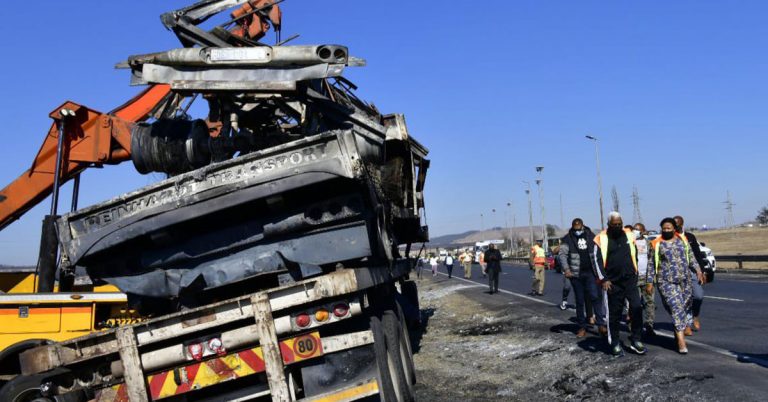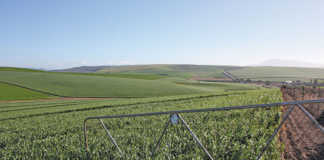
Photo: Twitter @kzngov
The violent protests and looting sweeping South Africa at present have far-reaching implications for the agricultural industry.
Although the financial losses suffered by the industry to date are difficult to quantify, the closure of roads and burning of trucks, among other incidents, mean agricultural products cannot be transported from farms to markets and harbours for exports.
This was according to PJ Hassard, president of the KwaZulu-Natal Agricultural Union (Kwanalu).
“Timber, for instance, can’t reach the markets and the same goes for products such as milk, eggs and meat. Perishable products can’t be held indefinitely and must be discarded in the long run, resulting in major losses for producers.
“Coupled with the foot-and-mouth [disease] outbreak in the province and the ensuing ban on the movement of cloven-hoofed animals, producers are currently facing huge challenges,” he said.
The protest action also had a serious impact on the availability of basic foodstuffs since the distribution thereof had become virtually impossible in the affected parts of KwaZulu-Natal, he said.
Hassard added that although the South African Police Service (SAPS) was doing its best to prevent and contain the protests, it seemed it lacked sufficient manpower do so effectively.
“The problem is that it is nearly impossible for the SAPS to act proactively since the outbreaks of violence [are] jumping from one locality to [another] without any indication where it can be expected next. But they are trying their best under tremendously difficult conditions,” he said.
Angus Williamson, chairperson of the Red Meat Producers’ Organisation in KwaZulu-Natal, welcomed President Cyril Ramaphosa lifting the ban on livestock auctions that had been in place since the end of June as part of the latest COVID-19-related lockdown restriction.
He said, however, that it was practically impossible to restart livestock auctions because of the large-scale disruptions caused by the civil unrest.
“The entire agricultural value chain in the province is affected. I know of a host of agribusinesses that closed their doors for the time being because of the looting and destruction. Retailers have also shut their businesses in fear of the looters and vandalism.”
The violence erupted on Thursday, 8 July in KwaZulu-Natal, reportedly in protest to the imprisonment of former president Jacob Zuma after he was found in contempt of court by the Constitutional Court.











